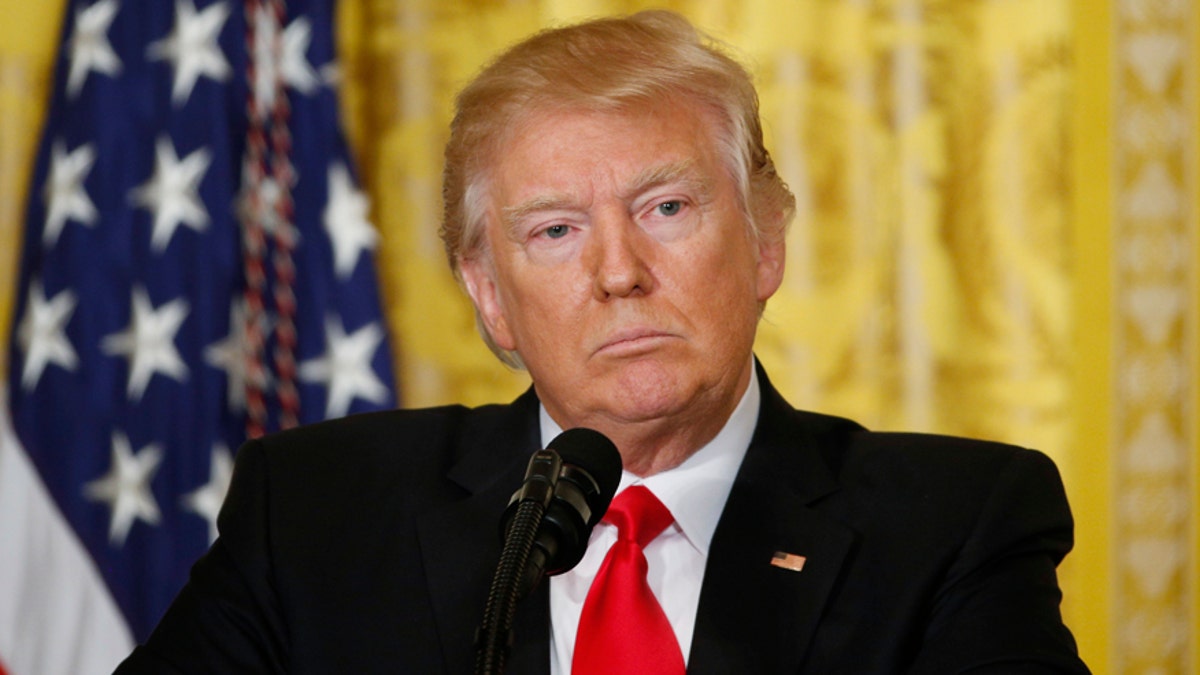
File photo - U.S. President Donald Trump faces a news conference at the White House in Washington, U.S., Feb. 16, 2017. (REUTERS/Kevin Lamarque)
If leaked drafts are any indication, the Trump administration's forthcoming cyber policy will likely be similar to those of previous presidents, a former Homeland Security official said at the RSA Conference in San Francisco last week.
"I actually think we have some decent clues. We've seen a couple of different leaked drafts of a cyber order," said Stewart Baker, former Department of Homeland Security Assistant Secretary for Policy under George W. Bush. "Compared to the [other executive] orders that were actually signed, they are remarkably boring and responsible."
Assuming something like the leaked draft orders are eventually signed by the president, the new policy will build on those from the Obama and Bush administrations, Baker speculated.
The first leak was "very procedural very respectful of cabinet ... responsibilities and not a know-it-all kinda document," Baker said. Specifically, it calls for a series of reports about various areas of cyber-security policy. The second leaked draft document called for more action, but still very measured action in the form of plans to harden security measures.
More From PCmag
Both were "very thoughtful and pretty consistent with past practices and with an orderly process," Baker said.
That might come as a relief to security experts watching an administration that has, at times, seemed to move faster than Washington might have expected. President Trump's travel ban executive order sparked protests across the country, and drew criticism from the tech industry.
It's also a departure from other aggressive policies introduced by the new administration. The new head of the FCC, for example, has been a critic of the agency's net neutrality rules.
But issues of cyber security have taken an increasingly large role on the world stage. In 2015, Chinese state-sponsored hackers were accused of stealing data from the US Office of Personnel Management, which contained information on millions of current and former government employees. More recently, the Obama administration levied sanctions against Russia in response to reports from US intelligence that the country tampered in the 2016 presidential election.
This article originally appeared on PCMag.com.
